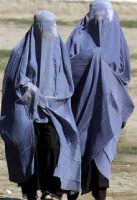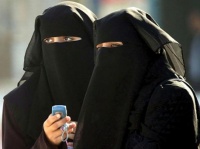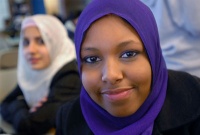With 5 million Muslims (about 10% of their population), France has Europe’s largest Muslim minority. France officially voted, however, to ban full face coverings in public with an overwhelming 335 to 1 voting. They followed Belgium, where it is a criminal offence to wear the burqa.
With all of this, then, I thought it would be nice to get a little bit of the details in order to understand the difference between all these types of coverings. This is not an exhaustive explanation by any means, so leave room for “if”s, “and”s, and “but”s.
First up: the burqa (a.k.a. burkha and burka).
This is the one that is causing the most controversy in France. In its simplest description, the burqa is a complete covering, from head to toe, including the eyes. Most images of the “burqa” shown in the media are actually incorrect, as the burqa has a veil that covers even the eyes. It’s usually worn over the daily clothing that a woman wears and can be taken off once the women enters the sanctuary of her home.
France is also banning, however, the use of the niqab, the full face veil that leaves a slit open for the eyes. People often use the words niqab and burqa interchangeably as they both cover the majority of a woman’s body.
And then there is the hijab, the traditional head covering that has become ubiquitous (and, in all honesty, actually quite stylish) in many parts of the world. Although the new law in France will not address hijabs, a previous 2004 law does address the hijab in schools. That 2004 law, however, also applies to other external religious symbols like Jewish kippas and Christian crosses.
Teachers and civil servants are also barred from wearing any religious symbols at work. Once a student reaches the university setting, however, they are free to wear religious artifacts.







